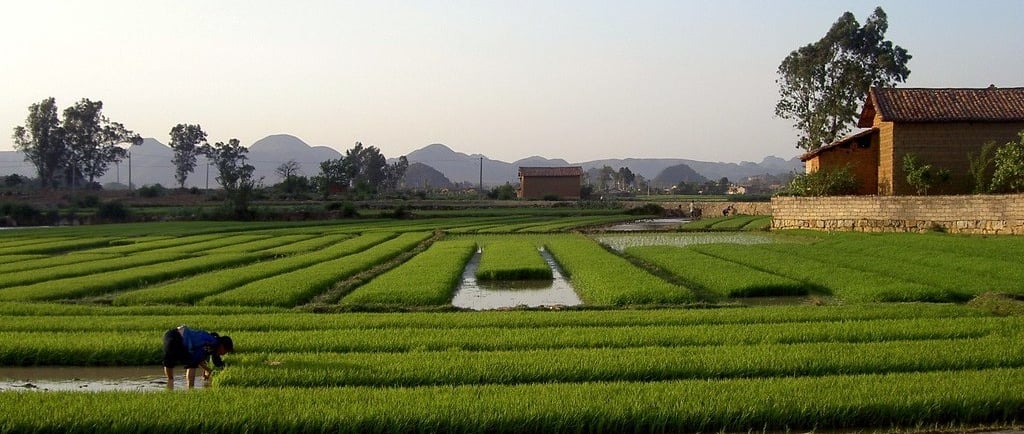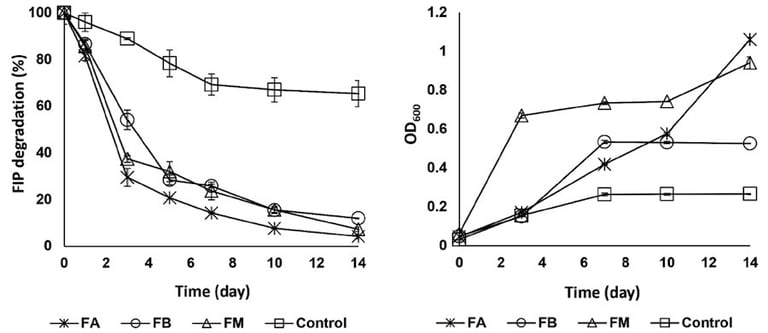Bioaugmentation in Rice Paddies — Six New Bacterial Strains to Tackle Fipronil and Thiobencarb
1 min read


The rice fields of tomorrow may not just depend on tractors and irrigation — but also on bacteria.
In a recent Frontiers in Microbiology study (2024), scientists unveiled six novel bacterial strains capable of degrading two notorious rice pesticides: fipronil and thiobencarb.
The challenge
Even though already outlawed in EU and strictly regulated in the US, Fipronil and thiobencarb are widely used as insecticides and herbicides in paddy fields across Asia. Unfortunately, they persist in the soil and water, threatening aquatic life and accumulating in food chains.
The breakthrough
Researchers isolated six strains from flooded paddy soils, including:
Enterobacter sp. (FA) and Brucella sp. (FB) → specialized in fipronil degradation.
Stenotrophomonas, Bordetella, and Citrobacter strains → focused on thiobencarb.
Pseudomonas sp. (MA) → impressively degraded both.
Key results
Over 90% pesticide removal within 14 days under lab conditions.
In soil microcosms, fipronil breakdown was 14x faster, and thiobencarb 5x faster than natural attenuation.
The strains effectively mineralized pesticides into less toxic byproducts (e.g., sulfone, sulfide, amid forms for fipronil; benzothiazole derivatives for thiobencarb).
Environmental adaptability
Functioned at pH 6–7 and moderate field-like conditions (20% soil moisture).
Worked even in non-sterile, naturally microbe-rich soils.
Why does this matter?
Current chemical-based remediation or simply "waiting it out" can take months, leaving residues that impact rice safety and export compliance. Bioaugmentation offers a rapid, low-impact, and scalable alternative.
Sources: Faridy et al., Frontiers in Microbiology, 2024.


Innovation & Technology
Probiotic soil activators for sustainable agriculture.
Contact
Newsletter
office@solvaterra.com
© 2025. All rights reserved.
